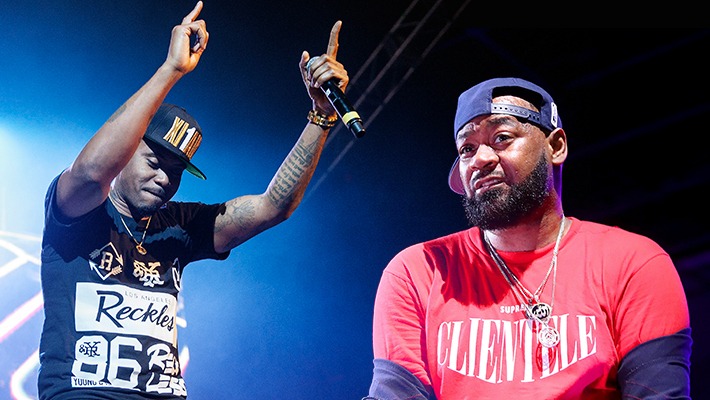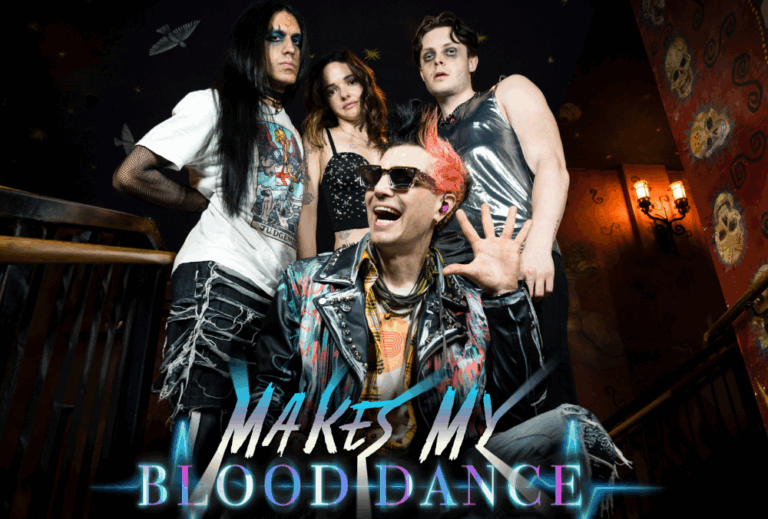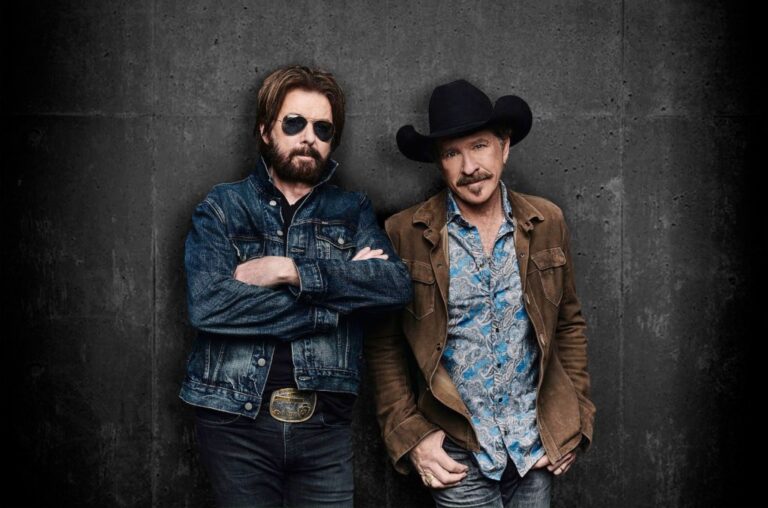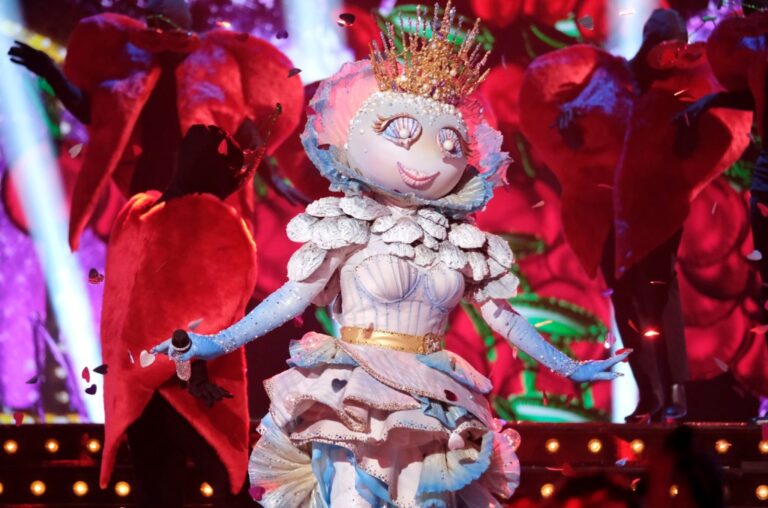Recently, I wrote about how music festivals have become the new proving ground for emerging artists. But there’s another function that festivals could be serving at the other end of the spectrum: booking legacy acts. While greenhorns and neophytes need a space to work out the kinks in their live shows and build centralized fanbases without the expense and time commitment of a lengthy tour, those who have deeply contributed to hip-hop’s cultural narrative — and have been, unfortunately, overlooked and bypassed for so long — could use the same opportunities.
In the past, Uproxx has addressed the benefits of festival appearances for legacy rap acts like A Tribe Called Quest, De La Soul, and Wu-Tang Clan… so why aren’t artists like these getting booked at more festivals? Or even for that matter, further down the bill at festivals marked for breakout hip-hop, such as Rolling Loud, Summer Smash, or Made In America? Whenever older acts are booked, it’s usually the biggest names — the Tribes, the Lauryn Hills, the Nases (Jones, not X), or the Snoops — and usually only as headliners.
That leaves a lot of room for overlooked, forgotten, underrated, and tenured rap acts, many of which remain active, playing small, local venues, juggling side hustles, and putting out their newest work independently. Off-hand, I can name dozens who have self-released their music, from AZ (the follow-up to his standout 90s borderline classic Doe Or Die drops this week) to EPMD (who got a nod on the eponymous track “EPMD” from Nas’ first King’s Disease album then appeared on the remix “EPMD 2” on the sequel) to many other artists whose catalogs Gen Z rediscovered through their participation in the Verzuz hits battle series produced by Swizz Beats and Timbaland.
Any number of veteran performers could fill out a festival lineup — especially in the medium-sized print section in the middle of the flyer — and offer an alternative to older fans wishing to skip sets from the newer acts figuring it out on the fly. Alternatively, younger fans catching performances from older artists could learn more about the music that preceded them and perhaps even influenced their current favorites. From a musical standpoint, diversifying the performers’ age groups could also create opportunities for much-needed mentorship and guidance by putting legends in close proximity to rising stars, benefiting both sides.
Imagine a world in which “old heads” didn’t seem quite so out of touch and bitter about being bypassed by the culture as tastes evolve. Imagine one in which “new jacks” were imparted the wisdom to care more about their careers and craft, avoiding the pitfalls and missteps that prematurely ended the relevance of some of those who came before them. In this world, rather than seeing constant internecine conflict between different generations of rappers and their fans, hip-hop could present a united front to the mainstream pop culture that often takes from it without compensation.
There has been some movement in a positive direction, though, with festivals like Lovers And Friends, whose original 2020 iteration struck a near-perfect balance between the classic and the new, casting Megan Thee Stallion and Saweetie alongside their inspirations like Eve, Lil Kim, and Foxy Brown before being canceled due to the pandemic. Perhaps when the rescheduled event returns, its organizers can find ways to include younger artists again after removing them from the 2022 flyer. Likewise, the Once Upon A Time In LA festival organized by Snoop Dogg has West Coast legends like DJ Quik and Warren G sharing space with rising names like BlueBucksClan, Drakeo The Ruler, and OhGeesy.
It’s worth noting that Snoop has always shared himself and his wisdom with up-and-coming artists from the Los Angeles area, and not a stretch to assume that at least some of his impressive longevity stems from that willingness to be a guide for younger artists rather than a judgmental scold. Artists often flourish under his tutelage — Game, Nipsey Hussle, Problem, and more have counted him as a mentor — while he benefits from being included in just about every young artist’s success story, not to mention their music. If/when D Smoke becomes a household name, Snoop Dogg will almost certainly be attached to D Smoke’s story for playing an instrumental role in the Rhythm+Flow rapper’s start and his feature on Smoke’s banger of a single, “Gaspar Yanga.”
Maybe it’s a little pie in the sky, but I can see a world where all our hifalutin ideas about cooperative, artist-owned labels, and rapper-led music industry labor unions could be achieved through this relationship-building putting artists with experience in the same rooms and on the same stages as ones with influence. Such a thing could only be good for hip-hop — and for the artists who represent it. Their recordings and performances could grow fresher, more entertaining, and more universally appealing, increasing the opportunities, platforms, and profits for everybody.
So, hey, promoters, not to tell you how to do your jobs but just think about expanding the age range of these festival rosters. If it doesn’t seem like they’d be much of a draw, I understand. I’m old enough to remember the downfalls of Paid Dues and Rock The Bells, so I know there’s a risk involved. But as the saying goes, no risk, no reward. This is a risk that has rewards far greater than just one event’s ticket sales. It could wind up paying off for generations to come. It could change the face of hip-hop or even the entire music industry. If festivals are really about the music, really about the community, then that’s a risk well worth taking. After all, hip-hop is for the children, but even children of hip-hop grow up eventually.
Some artists covered here are Warner Music artists. Uproxx is an independent subsidiary of Warner Music Group.




